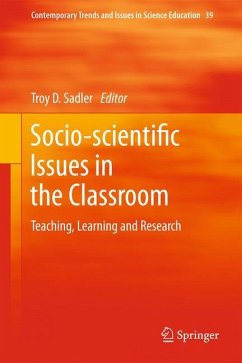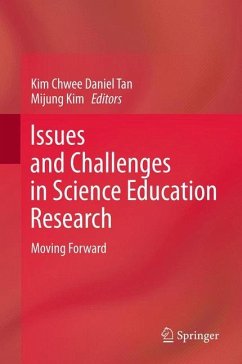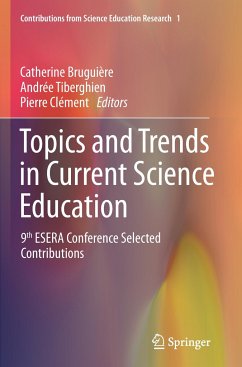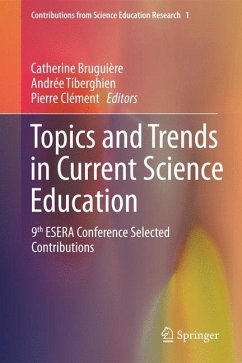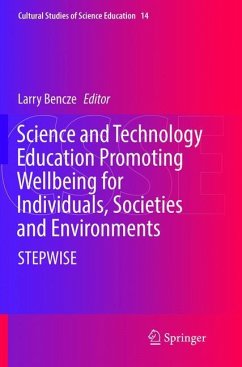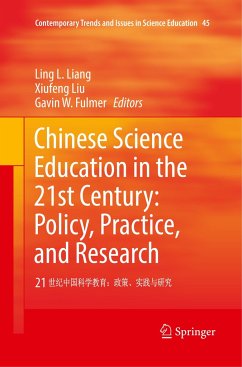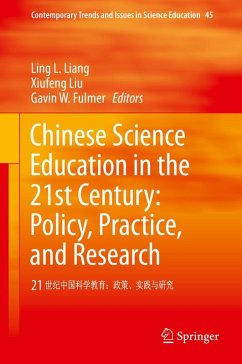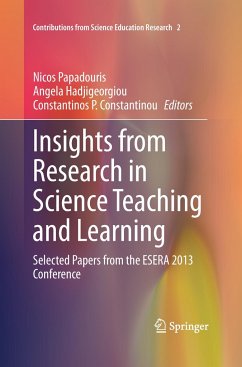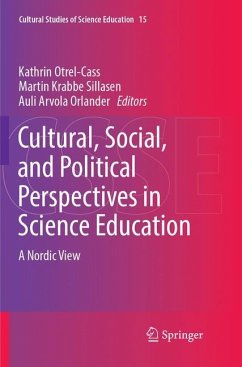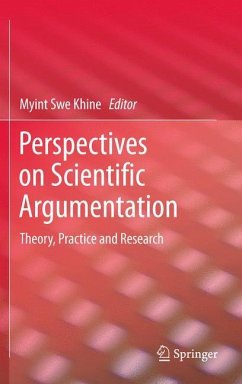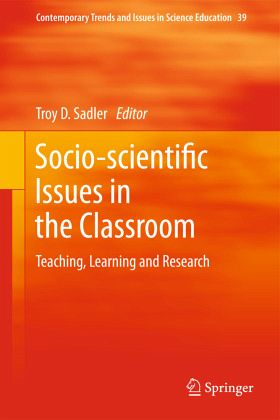
Socio-scientific Issues in the Classroom
Teaching, Learning and Research
Herausgegeben: Sadler, Troy D.

PAYBACK Punkte
76 °P sammeln!
Socio-scientific issues (SSI) are open-ended, multifaceted social issues with conceptual links to science. They are challenging to negotiate and resolve, and they create ideal contexts for bridging school science and the lived experience of students. This book presents the latest findings from the innovative practice and systematic investigation of science education in the context of socio-scientific issues. Socio-scientific Issues in the Classroom: Teaching, Learning and Research focuses on how SSI can be productively incorporated into science classrooms and what SSI-based education can accom...
Socio-scientific issues (SSI) are open-ended, multifaceted social issues with conceptual links to science. They are challenging to negotiate and resolve, and they create ideal contexts for bridging school science and the lived experience of students. This book presents the latest findings from the innovative practice and systematic investigation of science education in the context of socio-scientific issues. Socio-scientific Issues in the Classroom: Teaching, Learning and Research focuses on how SSI can be productively incorporated into science classrooms and what SSI-based education can accomplish regarding student learning, practices and interest. It covers numerous topics that address key themes for contemporary science education including scientific literacy, goals for science teaching and learning, situated learning as a theoretical perspective for science education, and science for citizenship. It presents a wide range of classroom-based research projects that offer new insightsfor SSI-based education. Authored by leading researchers from eight countries across four continents, this book is an important compendium of syntheses and insights for veteran researchers, teachers and curriculum designers eager to advance the SSI agenda.



